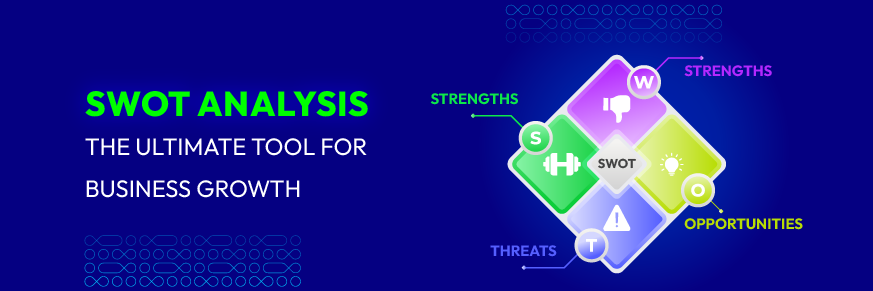Hire A Business Development Manager: An In-depth Guide
Summer Nguyen | 08-04-2023

Business development administrators play a crucial role in a business life cycle. They are the driving force behind a company’s growth and success. Hiring the right business development manager can be a game-changer for your organization.
This article will provide an in-depth guide on hiring a business development manager.
Business development managers, who are they?
Business development managers are professionals responsible for driving growth and creating new business opportunities for a company. They are crucial in identifying and pursuing potential clients, partnerships, and markets to expand the company’s reach and increase revenue.
Heads of business development typically work closely with the sales, marketing, and executive teams to develop and execute strategies that align with the company’s goals and objectives.
Their primary responsibilities can consist of the following:
- Finding new clients and markets.
- Building relationships with key players.
- Creating and executing growth plans.
- Negotiating and closing deals.
- Tracking results and adapting strategies.
- Collaborating with internal teams.

Why Hire a Business Development Manager (BDM)?
While adding new staff can impact your budget, a skilled business development manager can be a strategic investment that fuels your company’s growth. Here’s how a great BDM can benefit your organization:
- Streamlined sales & marketing: A business development manager acts as a bridge between your design and sales teams. They’ll collaborate to ensure your sales collateral—brochures, presentations, proposals is compelling and effectively communicates the value proposition to potential clients.
- Expert negotiation: A skilled BDM has the experience and negotiation prowess to secure favorable terms for your company while fostering positive client relationships. They’ll advocate for your company’s interests while ensuring the client feels valued.
- Competitive edge: BDMs are market researchers at heart. They stay informed about competitor offerings and identify their strengths and weaknesses. This knowledge allows them to suggest unique selling points (USPs) that differentiate your company from the competition.
Skills to Look For in a Business Development Manager
When hiring a great Business Development Manager, there are several key skills and qualities to consider. Here are some essential skills to look for:
- Data Analysis and CRM skills: Being able to track progress, analyze data, and leverage a CRM system effectively will help a BDM measure success and identify areas for improvement.
- Business acumen and market knowledge: A great BDM understands the industry they operate in. They should be familiar with current trends, competitor offerings, and the overall business landscape. This allows them to tailor their approach to each specific opportunity.
- MBA or relevant business degree: While formal education is not the sole determinant of success, an MBA or relevant business degree can provide a candidate with a solid foundation in business strategy, finance, marketing, and management. This educational background often equips individuals with the analytical and critical thinking skills necessary to excel in the role of a Business Development Manager.
- Ambitious cold-caller: An ambitious cold-caller demonstrates resilience, persuasive communication skills, and the tenacity to pursue new leads and opportunities. You should look for candidates who have a track record of effectively initiating and nurturing relationships through cold-calling, ultimately translating these efforts into tangible business results
- Strategic thinking: A good manager has a strategic mindset and can think critically and analytically. They can assess market trends, identify opportunities, and develop effective strategies to achieve business growth.
How to Hire the Right Business Development Manager
Hiring a business development manager is critical to your company’s success. This person will take charge of driving growth and identifying new opportunities for your business. According to Zippia, there are over 387,613 business development managers currently employed in the United States.
For this reason, hiring business developer managers that are suitable for your organization is never easy. However, you can take note the guide below to have more informed information on finding the right candidate.

Step 1: Develop a comprehensive job description
The first step in hiring the right business development manager is to create a detailed and comprehensive job description. This document should outline the responsibilities, qualifications, and expectations for the role.
A well-crafted job description is the cornerstone of attracting qualified candidates. Here’s what to include:
- Company overview: Briefly introduce your company, its mission, and its values. This helps attract candidates who align with your culture.
- Job title and summary: Clearly state the position title and provide a concise overview of the BDM’s role and responsibilities.
- Required skills and experience: List the essential skills and experience needed for the role. Include hard skills like CRM proficiency and financial acumen, as well as soft skills like communication, negotiation, and relationship building.
- Desired skills and experience: Mention additional skills that would be advantageous, such as industry knowledge, specific sales methodologies, or experience in managing teams.
- Responsibilities and duties: Outline the day-to-day tasks and core responsibilities of the BDM. This could involve market research, lead generation, proposal writing, and managing client relationships.
- Compensation and benefits: Mention the compensation package (salary range, benefits) to attract the right talent pool.
Pro tip: It is important to tailor your job description to the specific needs of your company. Don’t just use generic templates.
Step 2: Utilize multiple sourcing channels
Using multiple sourcing channels increases the visibility of the job opening. Candidates may have different preferences regarding job searching, and by being present on various channels, you can reach a broader audience. This improves the chances of attracting highly qualified candidates who may not be actively searching on a specific platform.
Moreover, some candidates actively search for job opportunities, while others may be open to new opportunities but are not actively looking. Utilizing multiple sourcing channels allows you to engage both active and passive candidates. Here are some effective sourcing channels:
- Job boards: Post the job description on popular job boards like Indeed, and Glassdoor. You need to consider using targeted industry-specific boards as well. For example, if your industry is eCommerce, you should explore Ecommercecrossing.com, Ecommercejobs.com, etc.
- Professional networking sites: You should leverage LinkedIn to search for potential candidates with relevant experience and skills. You can participate in relevant online groups and discussions to showcase your company and connect with potential talent.
- Employee referrals: It is a good idea to encourage your current employees to refer qualified individuals from their networks. This can be a great way to find candidates who are a good cultural fit.
- Recruitment agencies: Partner with reputable recruitment agencies that specialize in hiring a business development manager. They can provide access to a wider talent pool and handle the initial screening process.
Step 3: Screen resumes and applications
Resumes and applications provide an overview of a candidate’s qualifications, experience, and skills. By screening these documents, you can quickly assess whether a candidate meets the basic requirements for the business development manager position. It helps you narrow down the candidate pool and focus on those most likely to be a good fit for the role.
Here are some tips for effective screening:
- Develop screening criteria: You need to establish clear criteria based on the job description. This could involve minimum education requirements, relevant work experience, and specific skills.
- Utilize Applicant Tracking Systems (ATS): Implementing an ATS (such as BambooHR, Pinpoint ATS, Clear Company, etc) can streamline the screening process by automatically sorting and filtering resumes based on keywords and criteria.
- Prioritize relevant experience: Look for candidates with a proven track record of success in business development roles. Focus on quantifiable achievements and results in their previous positions.
- Assess skills and cultural fit: Beyond experience, when hiring a business development manager, it is critical to evaluate resumes for evidence of essential skills like communication, negotiation, and problem-solving. Moreover, you should look for candidates who demonstrate a strong cultural fit with your organization.
Step 4: In-depth interviews
The interview stage is a critical step in evaluating candidates’ suitability for the business development manager position.
The interview stage is your chance to delve deeper into a candidate’s potential, understanding their skills, experience, and cultural fit.
Here’s how to conduct effective interviews for selecting the right business development manager:
- Structured interviews: Develop a structured interview format with pre-defined questions to ensure all candidates are evaluated on the same criteria.
- Case studies and simulations: Incorporate case studies or simulations relevant to the BDM role. This allows candidates to showcase their problem-solving skills and approach to business development.
- Panel interviews: It’s also important to involve key stakeholders, such as senior executives or members of the sales team, in the interview process to ensure alignment and gather different perspectives.
Besides, we suggest a mix of general, situational, and skill-based questions to assess your candidates when hiring a business development manager:
- Experience & industry knowledge: “Walk us through your experience in business development. What industries have you worked in, and what were your biggest achievements?” (This gauges their overall experience and industry fit)
- Identifying opportunities: “Describe your process for identifying and qualifying new business opportunities.” (Evaluates their lead generation skills and strategic thinking)
- Market trends: “Can you discuss a recent market trend that has impacted business development strategies? How did you adapt your approach?” (Assesses their awareness of industry changes and ability to adjust)
- Building relationships: “Tell us about a time you built a strong relationship with a potential client. What was your approach, and what was the outcome?” (Insights into their communication and relationship-building skills)
- Handling objections: “How do you handle a prospect who has objections to your product or service?” (Tests their negotiation skills and ability to address client concerns)
- Goal Setting & Tracking: “How do you set goals for yourself in a business development role? How do you track your progress and measure success?” (Evaluates their goal-oriented approach and accountability)
- CRM & technology: “What Customer Relationship Management (CRM) tools are you familiar with? How do you leverage technology in your business development process?” (Assesses their tech-savviness and ability to utilize relevant tools)
- Sales & negotiation: “Describe your negotiation style. How do you find a win-win situation for your company and the client?” (Evaluates their negotiation skills and focus on building long-term partnerships) Situational judgement: “You have a limited budget for attending industry conferences. How do you decide which ones to prioritize?” (Insights into their decision-making skills and understanding of lead generation strategies)
- Adaptability & challenges: “Business development often comes with unexpected challenges. Tell us about a time you faced a setback and how you overcame it.” (Tests their resilience, problem-solving skills, and ability to learn from experience)
Pro tips: During the interview, you need to pay attention to the candidate’s communication skills, confidence, and ability to articulate their ideas. This can help you assess their ability to build relationships and negotiate effectively. Moreover, you need to look for individuals who demonstrate a proactive mindset, are adaptable to change, and possess a strong business acumen.
Step 5: Check references
References can provide valuable feedback on a candidate’s performance in previous roles. They can shed light on the candidate’s work ethic, interpersonal skills, problem-solving abilities, and overall effectiveness in a business development capacity. This evaluation helps confirm the candidate’s suitability for the business development manager role.
Checking references allows you to verify the information provided by the candidate, such as their employment history, job titles, responsibilities, and accomplishments. This validation ensures that the candidate’s qualifications and experience align with what they have presented during the hiring process.
Step 6: Check references
References can provide valuable feedback on a candidate’s performance in previous roles. They can shed light on the candidate’s work ethic, interpersonal skills, problem-solving abilities, and overall effectiveness in a business development capacity. This evaluation helps confirm the candidate’s suitability for the business development manager role.
Checking references allows you to verify the information provided by the candidate, such as their employment history, job titles, responsibilities, and accomplishments. This validation ensures that the candidate’s qualifications and experience align with what they have presented during the hiring process.
Step 7: Evaluate results and make an offer
Evaluating the hiring process results provides you with tangible data and insights to make an informed decision. By analyzing the information gathered from interviews, assessments, reference checks, and stakeholder feedback, you can objectively compare candidates and select the most suitable candidate for the manager role.
An efficient recruitment timeline can be ensured by evaluating results and making an offer on time. Candidates appreciate a streamlined process that respects their time and allows them to make informed decisions. This efficient timeline contributes to a positive candidate experience and minimizes the risk of losing the chosen candidate to other opportunities.
Cost of hiring a business development manager
According to Salary.com, the base salary for business development specialists can range from $115,669 to $153,304, with an average base salary of $133,428, depending on the factors mentioned above. Entry-level or junior managers may fall on the lower end of this range. In comparison, those with extensive experience working in high-demand industries or larger companies may earn salaries on the higher end.
To hire business managers, the cost can vary based on factors such as industry, company size, geographical location, level of experience, and individual performance. The overview of the income range for a manager can consist of base salary, performance-based incentives, and additional benefits.
More than that, many business development administrators have performance-based incentives tied to achieving sales targets, revenue goals, or other measurable metrics. These incentives can significantly increase overall income, including commissions, bonuses, profit sharing, or stock options. The structure and amount of these incentives can vary based on the company’s compensation plan and the individual’s performance.
Lastly, business managers often receive additional benefits as part of their compensation package. These benefits may include healthcare coverage, retirement contributions, paid time off, expense allowances, and professional development opportunities. The value and extent of these benefits can vary based on the company’s policies and practices.
Warm-up
It’s not easy to hire a business development manager that is suitable for your business. Opposingly, it might be challenging, but it’s essential to growing your business. Following the tips in this guide, you can find the right candidate and set your business up for long-term success.
Remember to look for someone with a strong understanding of your industry, a good communicator, and a proven track record of achieving results. With the right person in this role, you can drive growth and take your business to the next level.







